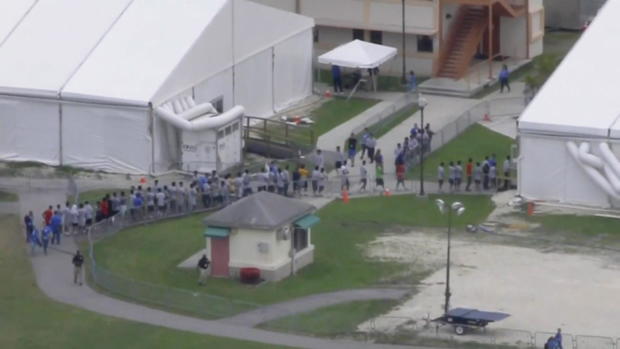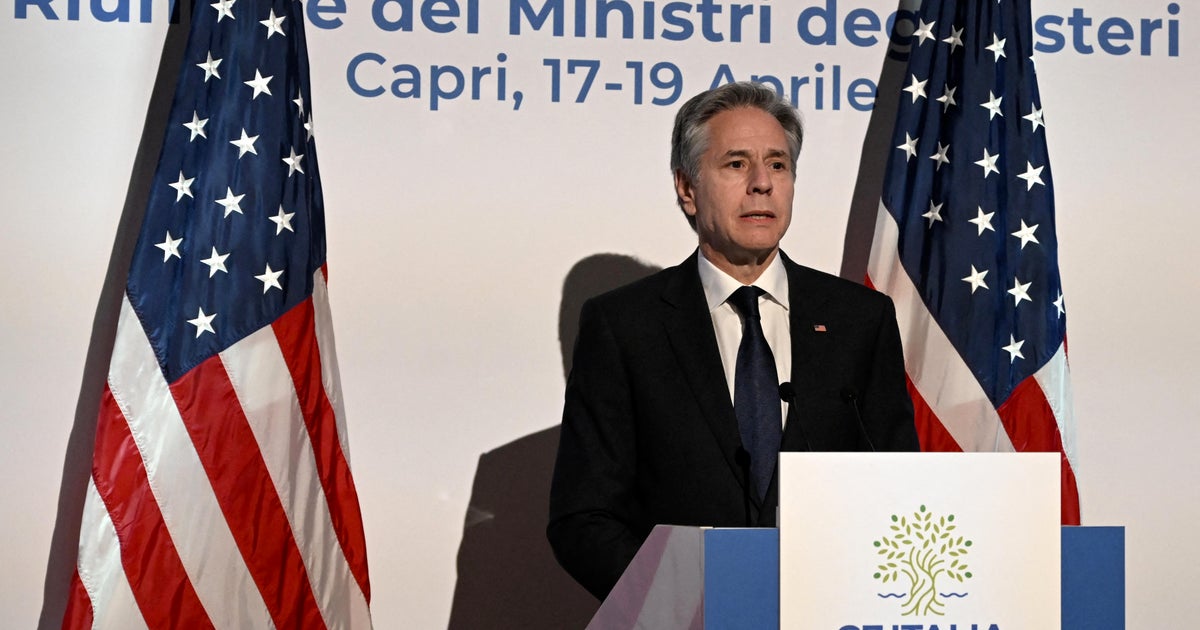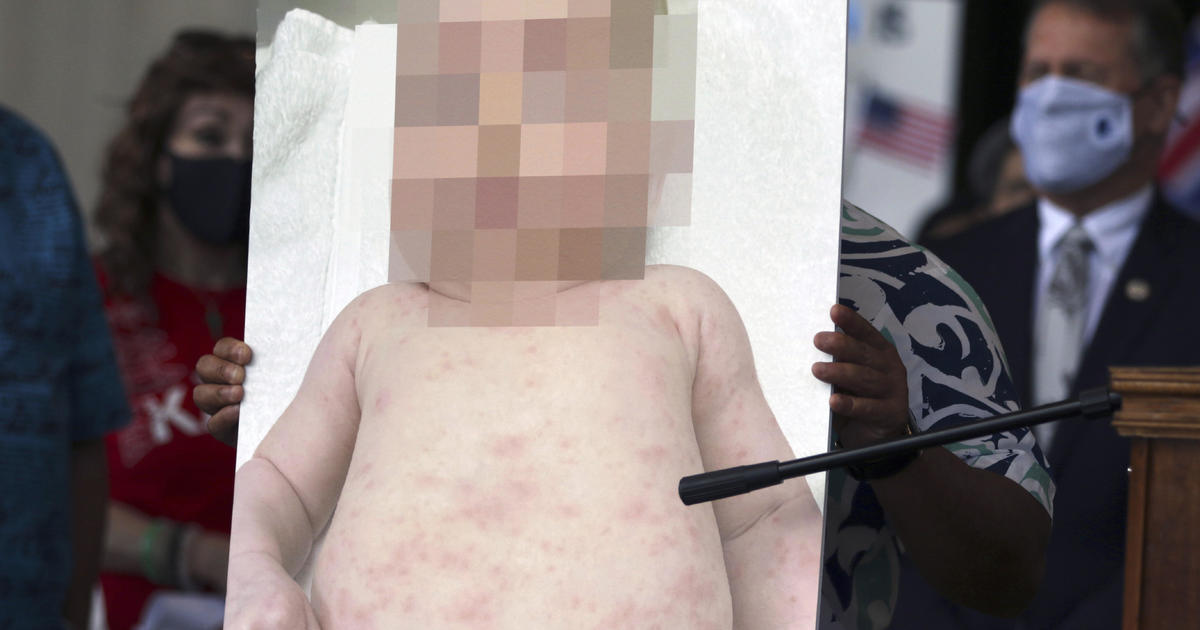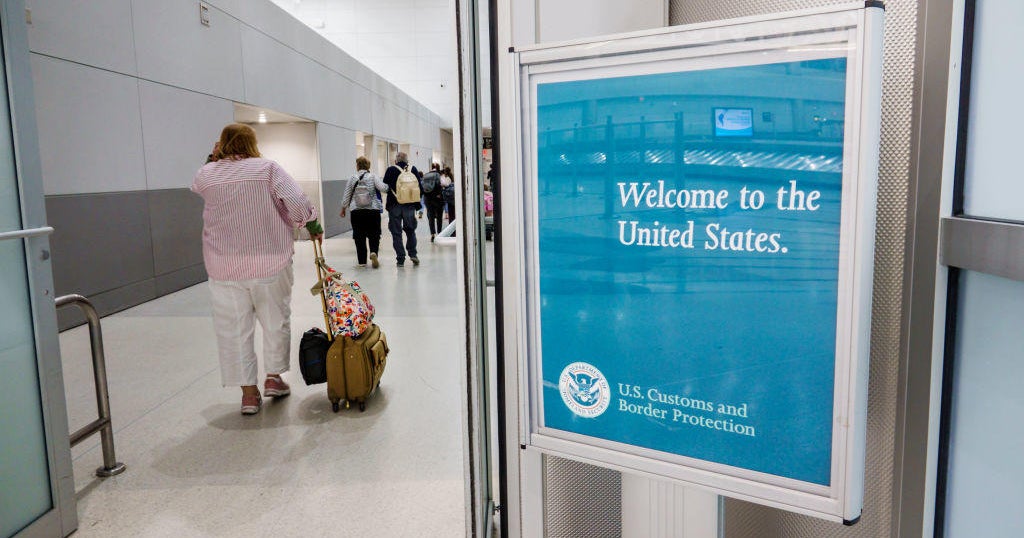Migrant children in U.S. are being held in unlicensed shelters, lawyers say
Some facilities holding unaccompanied migrant children are operating illegally without licenses and committing several other violations, according to a team of lawyers who oversee a court-ordered agreement dictating where — and how — the government can house the children.
The lawyers sent the Justice Department a list of more than a dozen facilities that failed to produce licenses when inspected. One of them is a rapidly expanding facility in Homestead, Florida. It is the largest facility for unaccompanied children in the country, and run by a company that cannot access the state's child abuse background system, because it does not have the required license.
The lead attorney for the team, Peter Schey, confirmed to CBS News that he wrote to the Justice Department's Office of Immigration Litigation on Dec. 31 to notify it of the unlicensed facilities, as well as a slew of other issues he says violate the decades-old Flores Settlement Agreement.
The agreement set rules regarding the treatment of immigrant minors in federal custody, including mandating that shelters meet state standards, keep children in the least restrictive environments possible and provide reasonable accommodations for private visitation and contact with families.
"We have a team of over 250 lawyers, doctors and paralegals visiting these places. We've interviewed hundreds of detained children. We think there are violations across the board," said Schey, executive director of the nonprofit Center for Human Rights & Constitutional Law, which is the only non-governmental organization permitted to inspect and assess every facility where immigrant children are held.
"Their whole program is in total violation and they must know that," he added, referring to the federal Office of Refugee Resettlement (ORR), the agency that oversees shelters for unaccompanied children.
A spokesperson for ORR confirmed that the Justice Department received Schey's letter, but said it does not comment on matters related to ongoing litigation.
The Justice Department declined to comment when asked about the letter.
Schey conveyed the substance of the letter to CBS News, which first learned of it through a different source with knowledge of the case. It alleges that ORR:
- Fails to notify children and their parents of their rights related to securing childrens' release from the facilities
- Discourages parents from seeking their children's release by giving information about them to Immigration and Customs Enforcement, according to Schey
- Delays background checks of sponsors — who are typically parents or relatives who are seeking to gain custody of detained children
Schey said ORR has also violated a core tenet of the Flores agreement by detaining children in facilities they cannot leave.
"I think (the government is) in contempt of court, because the judge has repeatedly issued orders clearly saying that the Flores settlement requires that unless the child is a flight risk or a danger, if you're going to detain them they have to be in a licensed, non-secure facility," Schey said.
At the unlicensed facility in Homestead, Florida, earlier this month, CBS News observed what Schey indicated amounts to a secure facility: tall, covered fences surrounded the site, which is on federal land adjacent to an Air Force base, and dozens of security personnel were on patrol.
Advocates and lawyers have raised concerns about the site, which is rushing to bring on hundreds of new employees. It is managed and staffed by a contractor called Comprehensive Health Services (CHS), which is not licensed in Florida and is therefore unable to access the state's child abuse and neglect background check system. The federal government granted a waiver allowing the facility to bypass that system, according to Mark Weber, Deputy Assistant Secretary for Public Affairs at the Department of Health and Human Services (HHS).
In emails with CBS News, HHS has pointed out that new CHS employees are subject to the FBI's fingerprint background check. However, the state system can highlight red flags that the federal system might miss, said Stacie Schmerling, a partner at Talenfeld Law, a Florida-based firm that specializes in child abuse cases.
"This is a facility for unaccompanied children, so you'd want to approach it like foster care, where you try to gather as much information as possible about someone's history," Schmerling said earlier this month.
It is not clear why HHS chose a company that does not have access to Florida's child abuse background system to run it, said Lewis Cohen, senior director of communications for the nonprofit National Center for Youth Law, a firm that is also involved with the Flores case.
"There is nothing that prohibits the government from contracting with a licensed operator, to open a facility on a federal base, and grant access to state inspectors to ensure adherence with the license and the related laws and regulations," said Cohen.
CHS' parent corporation, Caliburn International, has repeatedly declined to speak with CBS News about the Homestead facility, which has capacity for more than 10 percent of the nation's 10,700 unaccompanied migrant children, and will ultimately be able to fit more than 20 percent of that population.
The 1997 Flores Settlement provides detailed regulations governing the care of immigrant children, and the licensing standards for the facilities where they are detained. The settlement's standards include the requirement that "licensed programs shall comply with all applicable state child welfare laws and regulations and all state and local building, fire, health and safety codes."
Licenses are issued by states.
An HHS spokesperson also said the Homestead facility "is required to meet the stringent standards outlined by ORR," in its policy manual, but those standards are not subject to frequent, surprise inspections conducted by state officials.
Child care facilities monitored by state officials are typically subject to multiple, often unannounced child welfare inspections every year. The Homestead facility is required to undergo just one such examination, "every two years," according to the ORR manual.
Erika Weissinger, a visiting professor at the University of California Berkeley's Goldman School of Public Policy, said frequent granular inspections are key to caring for children in shelter systems.
"Ensuring that care facilities meet licensing standards is a critical component of making sure these children are safe from harm. I am alarmed that this basic oversight component is being waived," Weissinger said.




